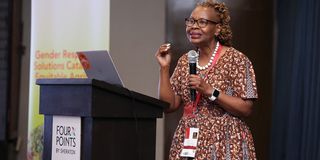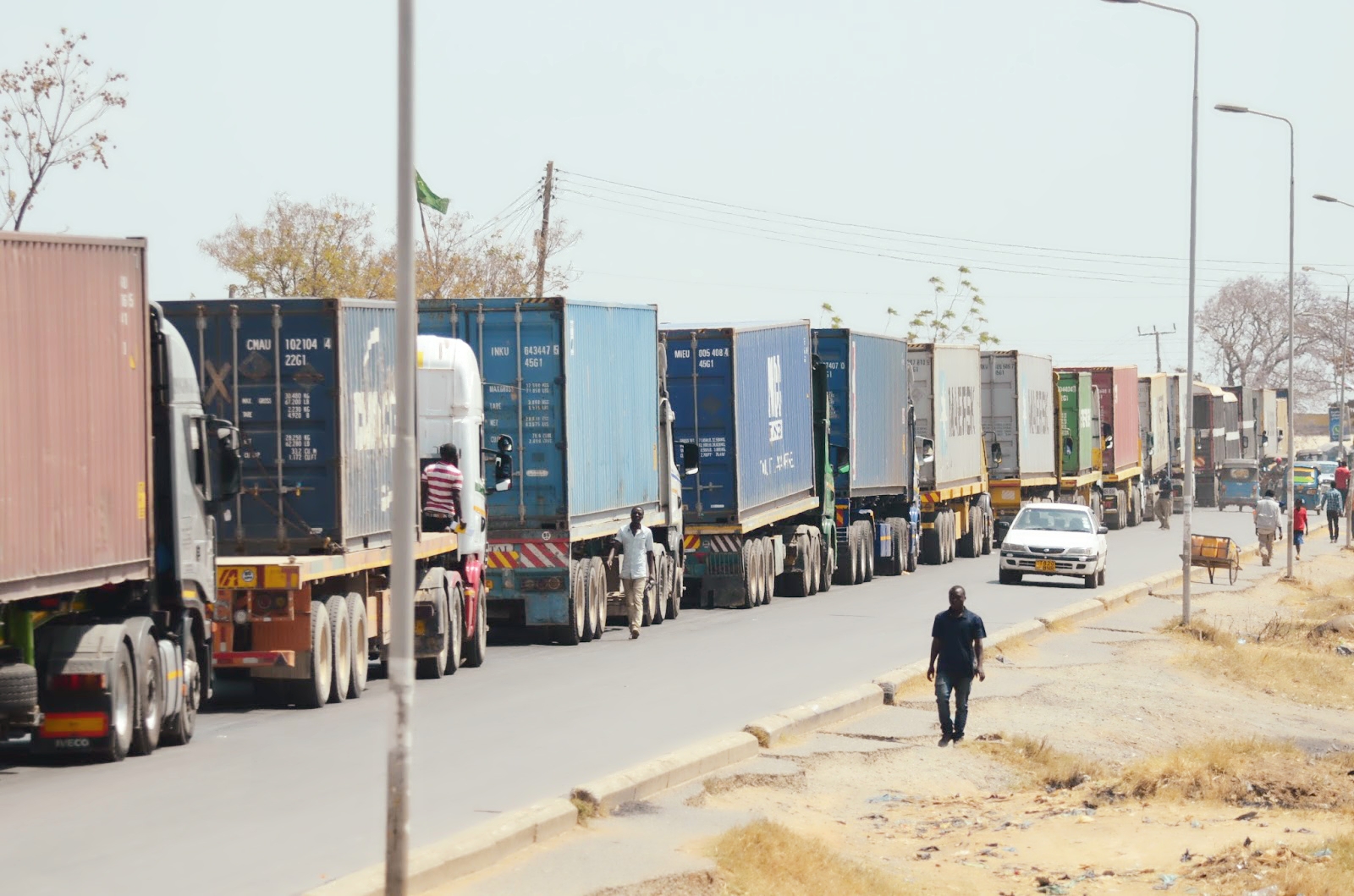What the launched AR4D women empowerment strategy means

African Women in Agricultural Research Development director, Dr Susan Kaaria speaks during the launch of a five-year strategy aimed at strengthening the capacity of women and girls. PHOTO | COURTESY
What you need to know:
- The strategy aims to empower women and young girls to acquire leadership knowledge and skills and enable them to be part of decision making in the Agriculture Research for Development (AR4D).
Dar es Salaam. The African Women in Agricultural Research Development (Award) on Wednesday launched a five year (2023-2027) strategy aimed at strengthening the capacity of women and girls in the continent including Tanzania.
The strategy aims to empower women and young girls to acquire leadership knowledge and skills and enable them to be part of decision making in the Agriculture Research for Development (AR4D).
Speaking during the document launch, Award director, Dr Susan Kaaria said expectations are that in the next five years, Tanzania will have more women in the national agriculture research organisations.
“The country will also have more girls and women in higher learning institutions specialised in agriculture training as well as establishing more gender responsive policies,” she said.
She said Award has a gender chapter and alumni in the country who will support the smooth implementation of the institution’s work.
“Today, we had wonderful presentations from Tanzania’s ministers of Agriculture (Hussein Bashe) and his Livestock and Fisheries counterpart (Abdallah Ulega) at the African Food System Forum (AGRF),” she said.
“They have revealed the country's plan to prioritize the women and the youth. If that is the area of investment priority, we will be happy at supporting the government to push the agenda and ensure the institutions have women in the leadership that are also an integral part in decision making,” she added.
Describing the new strategy, Dr Susan Kaaria said the new strategy strengthens the just expired strategy (2017-2022) and removes things that were not adding value.
She said the strategy would be working on the three pillars; investing in individuals; strengthening institutions and enabling the environment.
Investing in individuals will include producing capable, confident, and influential women leaders in AR4D and women leaders in the AR4D and building a pool of AR4D professionals equipped to integrate gender in their practices.
“Strengthening institutions’ pillars will involve building the institutions to embrace gender-responsive policies and practices, producing Award alumni influencing institutional policies and practices as well as becoming a world-class capacity development in leadership, mentorship, science and gender in agri-science food systems,” she said.
“Regarding building an enabling environment, Award plans to build compelling evidence on the impact of gender responsiveness in AR4D and formulating a gender-responsive policy environment,” she added.
During the event, Ambassador at Large Global Food Security at the Ministry of Foreign Affairs European Union and Cooperation, Gabriel Ferrero said there has been a heated debate about the involvement and empowerment of women and girls to achieve gender equality in the agricultural and food systems.
“It has been four years and this is good news. Member states of the committee have reached an agreement a couple of months ago over voluntary gender equality in the food systems and nutrition,” he said.
However, Dr Lateef Sanni, Award chairperson of the steering committee told stakeholders that there are benefits in investing in gender equality.



